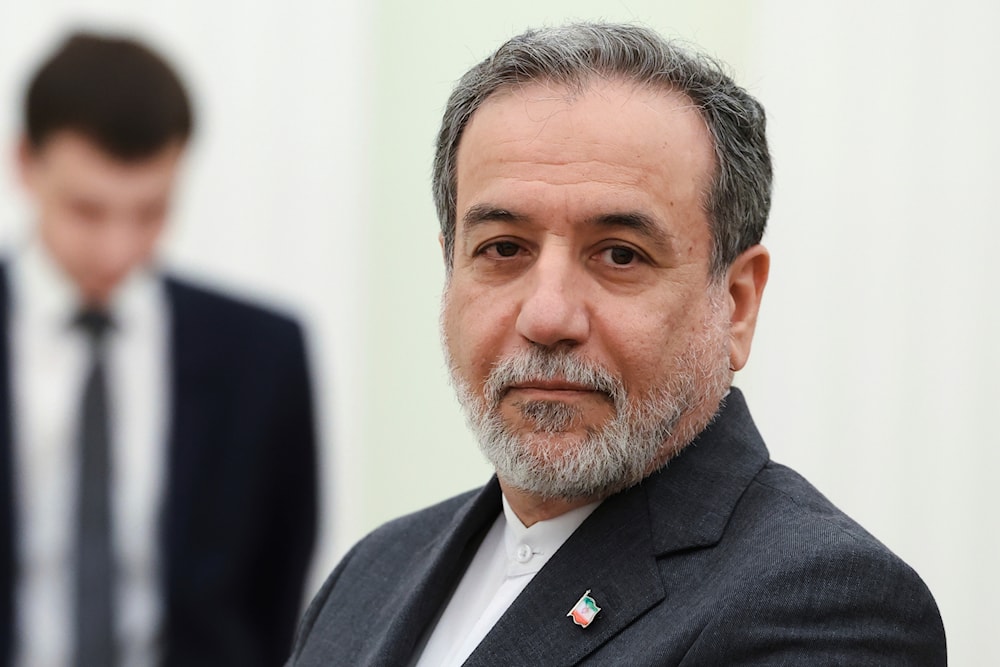Iran warns Europe against unlawful snapback on nuclear deal
Iran’s Foreign Minister Abbas Araqchi says any European move to trigger UN sanctions would end Europe’s role in diplomacy, while stressing Tehran has prepared joint measures with China and Russia in response.
-

Iranian Foreign Minister Abbas Araghchi stands waiting to meet Russian President Vladimir Putin for the talks at the Kremlin in Moscow, Russia, Monday, June 23, 2025. (Kremlin Pool Photo via AP)
Iran’s Foreign Minister, Abbas Araghchi, has dismissed any attempt by the three European signatories to the 2015 nuclear accord to trigger the UN’s snapback mechanism as unlawful. Speaking to IRNA, Araghchi warned that Tehran has prepared a response should the measure be pursued.
The comments come amid renewed debate over the future of the nuclear deal, known as the Joint Comprehensive Plan of Action (JCPOA), following US and Israeli attacks on Iranian nuclear facilities in June. European nations have suggested reinstating UN sanctions before the accord expires in October, a move Tehran says would undermine what remains of diplomacy.
Araghchi argued that European powers have forfeited their right to use the snapback provision through their recent stance on Iran’s nuclear programme, including discussions on “zero enrichment.”
“They think the snapback is the only tool they have,” he stressed. “You’re no longer a participant in the JCPOA, and the right to snapback belongs only to remaining members.”
The minister warned that invoking the mechanism would signal the end of Europe’s diplomatic role. “Even if we assume you have the right, what will happen if you do it? First, Europe's role in diplomacy will be completely over... What remains after that? The end of diplomacy?” he questioned.
Economic, political impact assessed
Araghchi downplayed the potential economic damage, noting that current US sanctions are already more extensive than any UN measures that might be restored.
“Yes, from a psychological and political, and even strategic point of view, there are consequences,” he said. “But not to the extent that it would bring diplomacy to a dead end or paralyze the country.”
Iran, he added, has been coordinating with China and Russia for years on contingency plans. “We have had various joint meetings and designed a series of joint measures that we will implement if the snapback is activated,” Araghchi said.
Separately, Iran has begun discussions with the International Atomic Energy Agency (IAEA) on a revised framework for cooperation, prompted by recent attacks on its facilities. Araghchi stressed that while inspections will continue for essential operations, the new approach will be guided by Iran’s Supreme National Security Council.
Araghchi also rejected the prospect of immediate talks with Washington. “America has not reached a point where it can enter into an equal negotiation,” he said. Any talks, he added, would only proceed once “negotiation maturity” had been reached.
He confirmed that compensation for damage caused by recent strikes could be discussed, but would not be a precondition for dialogue. “There is no coherent message from the Americans. I think maybe they still haven't reached a final conclusion,” he said.
US says ready to return to talks with Iran: Sources to Al Mayadeen
Western diplomatic sources told Al Mayadeen on Wednesday that Swiss Deputy Secretary of State Gabriel Luginger has conveyed a message from US envoy Steve Witkoff to Iranian officials in Tehran.
According to the sources, Witkoff’s message signaled Washington’s readiness to resume negotiations with guarantees that no conflict would erupt during the process, nor would any military escalations occur.
Unofficial Iranian sources also confirmed that Tehran received the message from Witkoff, which called for a return to talks on the nuclear file.

 3 Min Read
3 Min Read










